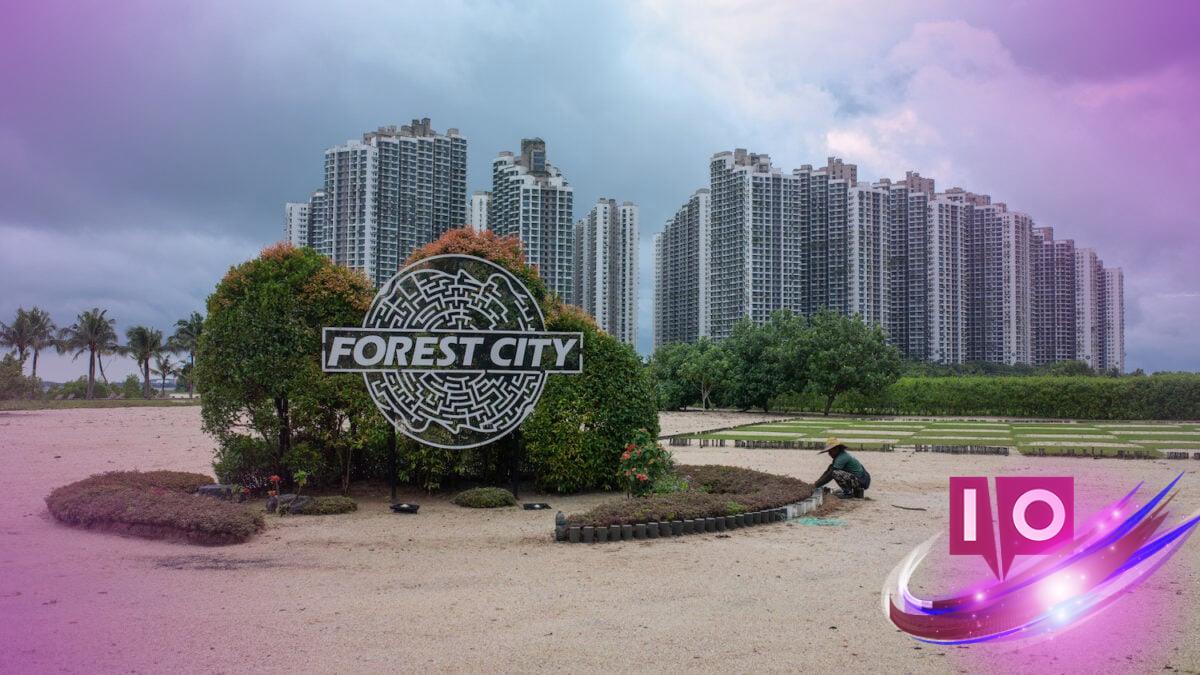For nearly a decade, tech investor Balaji Srinivasan has been advocating for Silicon Valley to “secede” from the rest of the United States. This visionary doesn’t just desire a break from regulations; he envisions a full detachment where tech professionals create a separate nation through crowdfunding.
Srinivasan’s political vision is embodied in what he calls the “network state” movement. This philosophy promotes the idea of privately governed “countries” operated by decentralized corporations instead of traditional governments.
The Launch of the Network State School
Last year, Srinivasan introduced a new educational initiative designed for tech enthusiasts eager to engage in the Network State movement. Announced on his blog, this institution aims to instill his unique philosophy in a community of like-minded individuals. The location is as unconventional as the idea itself: a $100 billion abandoned city in Malaysia called Forest City, initially part of China’s Belt and Road initiative.
A Day in Forest City
What does a typical day for students in Forest City look like? Surprisingly, it’s quite similar to life in Silicon Valley. Participants engage in a rich blend of coding, fitness activities, gourmet dining, and comprehensive seminars led by successful entrepreneurs—experiences they could also find back in San Francisco.
Almost 400 students, mostly entrepreneurs, have ventured to Forest City to explore topics ranging from coding to innovative theories of statehood. They are embarking on crypto projects while focusing on personal development, aiming to test the notion that a shared ideology could unite them more than shared geography ever could. The monthly cost starts at €1,400 (approximately $1,500), which includes lodging and meals for those in shared accommodations.
Community and Challenges
Participants express enthusiasm about their surroundings, with many stating that the atmosphere fosters creativity and collaboration. Yet, despite inherent challenges—including the complex nature of establishing a new country—the Network State movement is steadily gaining traction. Advocates continue to secure funding and political backing, with ambitious plans that even include territories like Greenland or the Balkans. Some are pursuing more whimsical ventures, such as staking a claim on an asteroid.
The Reality of Establishing a New Nation
While enthusiasm is palpable among supporters, many initiatives associated with the Network State have encountered significant hurdles. Prospera, a promising city in Honduras meant to be a test case for the movement, is currently mired in legal disputes with the Honduran government over its existence. This struggle against established powers may define the Network State’s true future, contrasting sharply with its founder’s lofty ideals.
Many wonder: Can the Network State concept truly become a reality? The challenges of creating a new nation are immense, and navigating legalities might dominate the narrative moving forward.
What are the implications of the network state movement for tech communities worldwide? As more tech professionals gather under this ideology, they may challenge existing government frameworks, leading to shifts in how we think about nationhood and governance.
Are there practical examples of network states that have succeeded? As of now, many projects are still evolving, and no full-fledged network state exists, but efforts like Forest City may serve as a launchpad for potential successes.
What educational opportunities are available for those interested in the network state movement? Initiatives like Srinivasan’s school in Forest City provide avenues for learning and collaboration, catering to individuals eager to explore this new political frontier.
Are there similar movements advocating for revolutionary governance models? The “Freedom Cities” initiative shares parallels with Srinivasan’s endeavors, as both seek to redefine societal structures and political organization.
In conclusion, Balaji Srinivasan’s vision for the Network State is ambitious and fraught with challenges. Yet, the growing community around this idea poses important questions about the future of technology and governance. If you’re intrigued by these developments and want to deepen your understanding, continue exploring related content at Moyens I/O.
